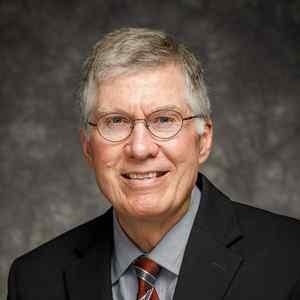Episodes

Monday Feb 04, 2019
Episode 045 - Daniel Hinshaw and the human microcosmos
Monday Feb 04, 2019
Monday Feb 04, 2019
Today we start a two-part series with Daniel Hinshaw, a professor emeritus of surgery at the University of Michigan, who has come to focus on palliative care for the dying. He sees his work as having deep roots in the Christian tradition, and has written on the subject of "kenosis" (the Scriptural concept of "emptying" or "reduction" or "wasting away" that is key to our understanding of the Incarnation and the Passion of Jesus Christ) as a useful concept for understanding our own mortality, at the scale of our individual cells as well as our whole composite being.
He shared some interesting spiritual perspectives with us. As someone who in his mature years moved from the Seventh Day Adventists and sought out the apostolic churches, he now belong to the Orthodox Church. We spent some time discussing the "microcosmos," John Chrysostom's idea that the human being contains all creation in miniature, and how that is oddly true in certain respects: we are each communities of organisms. Our gut microbiome, for example.
Daniel went on to talk some heavy duty biochemical shop. We discussed the oxidizing agents (e.g., hydrogen peroxide) involved in inflammatory ailments. He touched on the fact that some of the worst chemical warfare agents, like sulfur mustard gas, operate in a similar oxidizing mechanism, triggering apoptosis, and discussed some of his work on finding remedies for these agents, as well as how similar they are to the earliest generation of chemotherapy agents.
We shifted back to the question of faith, and discussed how both Daniel and his wife confronted suffering in their work (his wife as a psychiatrist treating AIDS patients in particular) and this was a core part of their journey. Daniel pointed out the provocative fact that we really seem to be programmed to age and die, and that the only exceptions to this... are cancer cells.
Another moral point we discover in modern biology has to do with epigenetics. As human beings, we can abuse our bodies to the point that we leave effects on our germ cells that can carry on the "sins of the father" to future generations.


No comments yet. Be the first to say something!